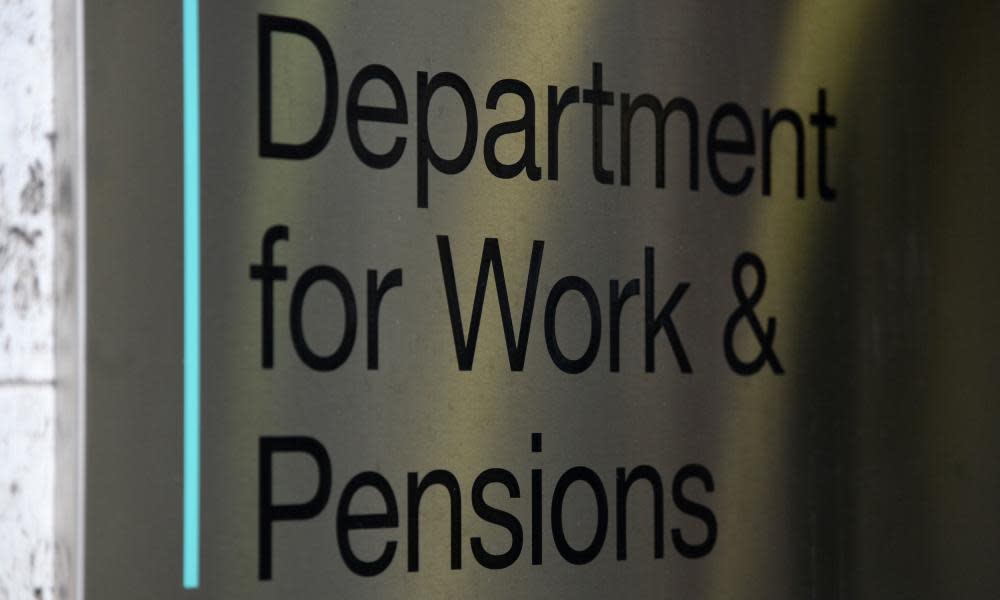Universal credit wait fuels poverty and food bank use, says research

Ministers have come under renewed pressure to fundamentally overhaul universal credit after fresh research claimed that the welfare benefit’s built-in five week wait for payment fuelled claimant poverty and increased food bank use.
The Trussell Trust food bank network said the minimum 35-day wait for payment endured by claimants after signing on to universal credit could have a rapid, devastating and long-lasting impact on their finances, housing security and mental health.
Claimants unable to cope without income during the waiting period faced destitution, Trussell said. They were unable to afford food, frequently went without meals, failed to pay utility bills, ran up rent arrears and risked eviction.
Food bank use had soared by a third in areas where universal credit had operated for a year, it said, drawing on data from 414 food banks. Demand for food parcels increased by 40% where universal credit had been in place for at least 18 months, and 48% where it had been established for at least two years.
Related: Surge in EU citizens unfairly refused access to universal credit
The research cited the case of John, a man with severe mental illness, who did not eat for nine days after being left with no income after claiming universal credit. His health had declined to the point where he “didn’t feel well enough to leave the house to get a food bank voucher”.
Government measures to mitigate the negative effects of the five-week wait were either limited or failing, Trussell said. Repayable advance loans issued to claimants to tide them over simply created long-term difficulties for claimants as they paid them back, in effect leaving them “deciding between hardship now or later”.
“Universal credit should be there to anchor any of us against the tides of poverty. But the five-week wait fatally undermines this principle, pushing people into debt, homelessness and destitution,” said Trussell Trust chief executive Emma Revie.
The Trust called for a significant reduction in the five-week wait to ensure claimants were paid much sooner. “Universal credit is the future of our benefits system. As long as its design continues to pull claimants into financial hardship, it will not be the poverty-fighting reform [ministers] promised.”
The scale of the problem was underlined by separate research published by the Joseph Rowntree Foundation which estimated that that two in five families set to move on to universal credit in future – about 2m households – will be unable to meet basic living costs during the five-week wait.
The foundation said there was “nothing compassionate or just” about the five-week wait for an initial payment, which it described as “immoral.” It backed Trussell’s call to shorten it, saying that universal credit was forcing families to go to food banks when it should be helping to reduce the need for them.
The Department for Work and Pensions (DWP) dismissed the Trussell Trust report as unsubstantiated and based on unrepresentative data, and insisted its advance loans were working as intended. “It categorically does not prove that universal credit is the reason behind increased food bank usage,” a DWP spokesperson said.
Shadow work and pensions secretary Margaret Greenwood said the five-week wait was wrong and advance loans were not the answer. “Labour will stop the rollout of universal credit and ensure that our social security system lifts people out of poverty and supports any one of us in our time of need,” she said.
There are reports that the Labour party is set to announce that it will “scrap” universal credit at its annual conference next week. A year-long review of party policy is said to have recommended that it should adopt a policy of “transformative change” to make the benefit fairer.
The design of universal credit built in a six-week waiting time for a first payment – later reduced to five weeks – to put claimants on to a monthly-in-arrears payment cycle, paid electronically, ostensibly to reflect the world of work. The benefits it replaces typically had a 15-day wait for payment.
However, the designers seemingly failed to recognise that substantial numbers of claimants were used to one or two-week payment cycles, and few had sufficient savings to tide them over a lengthy period without income, making their transition to the new benefit an often traumatic struggle.
Universal credit bundles together six working-age benefits into one monthly payment. It was originally due to be fully operational in 2017 but the current deadline is 2023, when about 7m people will depend on it. A devastating auditors’ report last year found it was unlikely to deliver planned financial savings or employment benefits.
Gillian Guy, chief executive of Citizens Advice, said the Trussell data echoed its own findings. “It’s clear, from the findings across the charity sector helping universal credit claimants, that the system is not providing everyone with the financial safety net people need,” she said.

 Yahoo News
Yahoo News 
